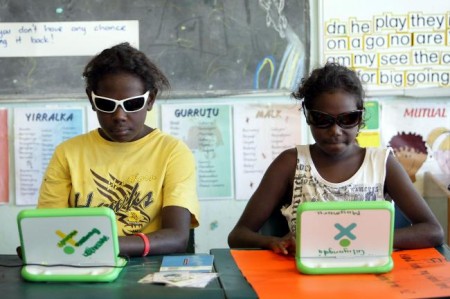Also in Arabic: ÙÙŠ اللغة العربية

After a 10-month wait for approvals, the UNRWA OLPC core team, administrators, parents and children of Rafah took part in a brilliant beginning to the UNRWA OLPC program in Gaza, with a celebration event on April 29th. I was fortunate to spend the days beforehand with this team and their community. They worked tirelessly – children, parents, teachers, developers, and administrators – and it was inspiring to work with them.
The Palestinian people have the optimism, resourcefulness, and dedication to turn a speck of dust into a garden. Not just any garden, but one that the entire community shares.
And the XO has a special feature beyond its tech specs and activities – it can energize a community to have hope for their children. One member of the core team, Jamil, remarked; “This is XO is a humble machine, we can take it and do great things with it.”
They did.
In a mere 12 weeks after their first intro to the XO, the Gaza core and community team:
– prepared infrastructure
– designed and gave workshops for 200 teachers and 12 administrators
– introduced the XO to 2000+ students
– helped these children introduce the XO to their parents
– created a digital library
– ported their own ILP learning games to run on the XO
– integrated Memorize, Chat, Browse, & Speak into classroom activities
– helped teachers begin distributing homework via the XO
– witnessed initially skeptical parents begin to advocate at shops and mosques for XOs for all the children of Gaza
Continue reading →





